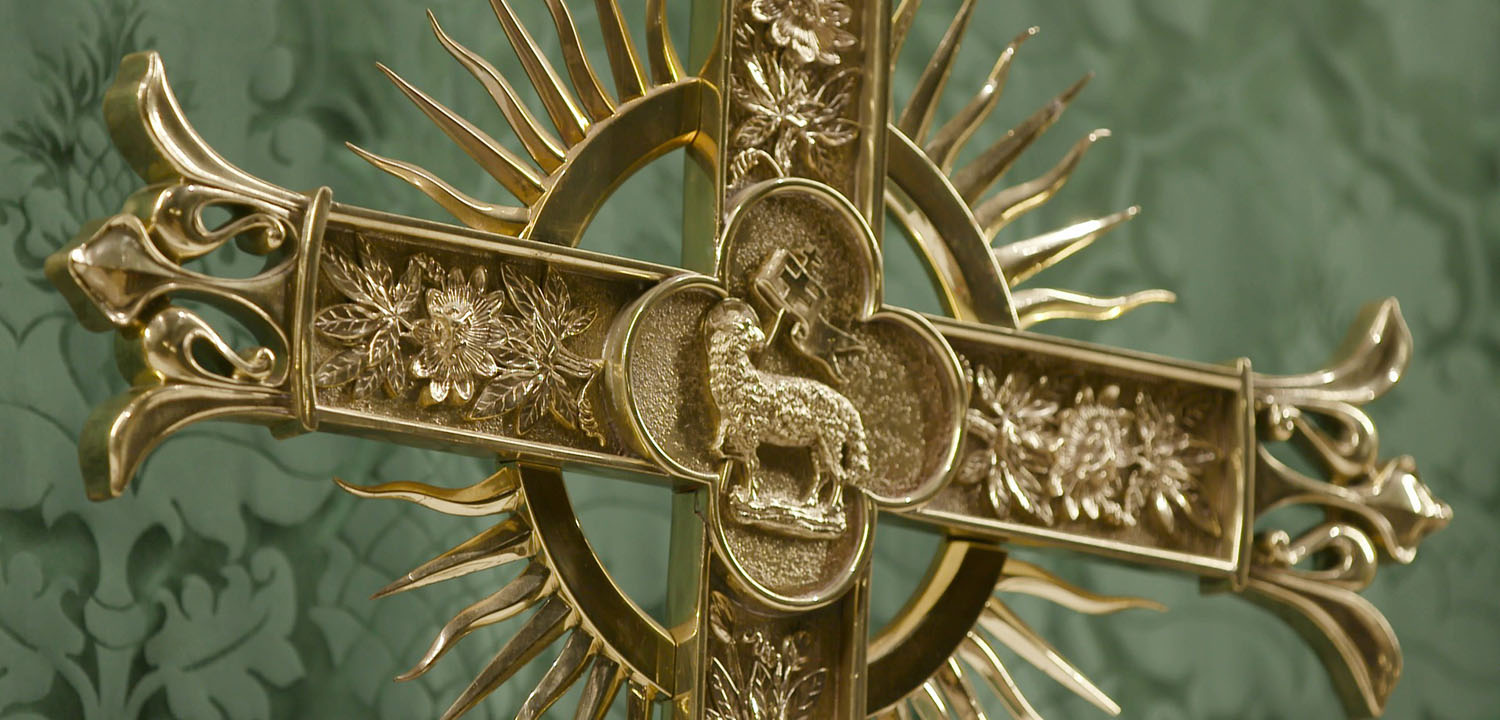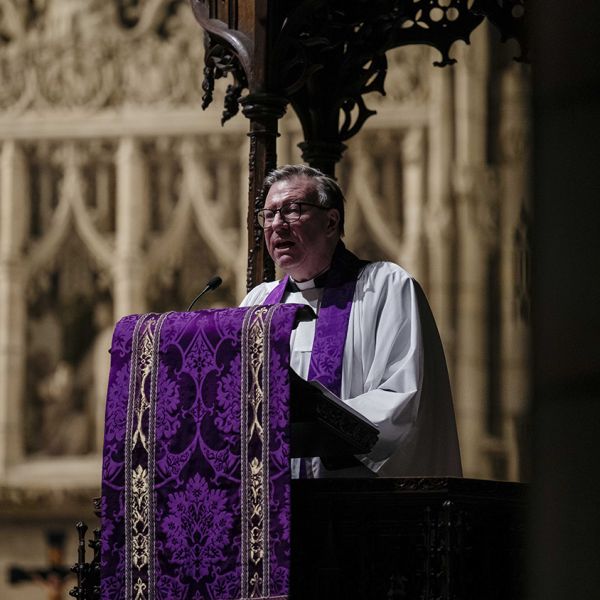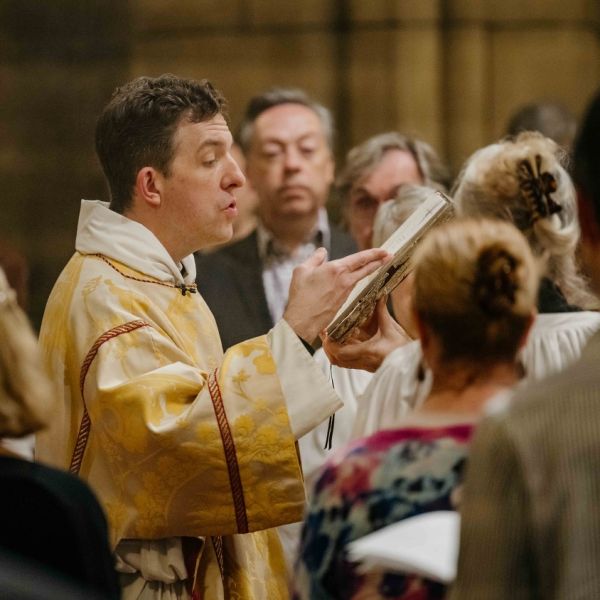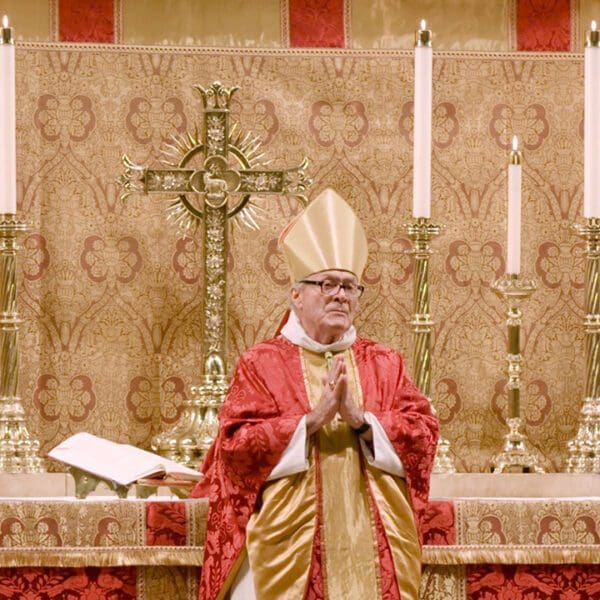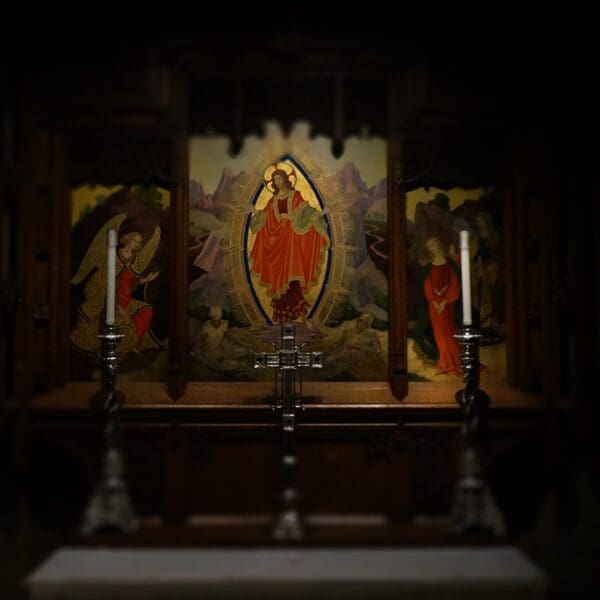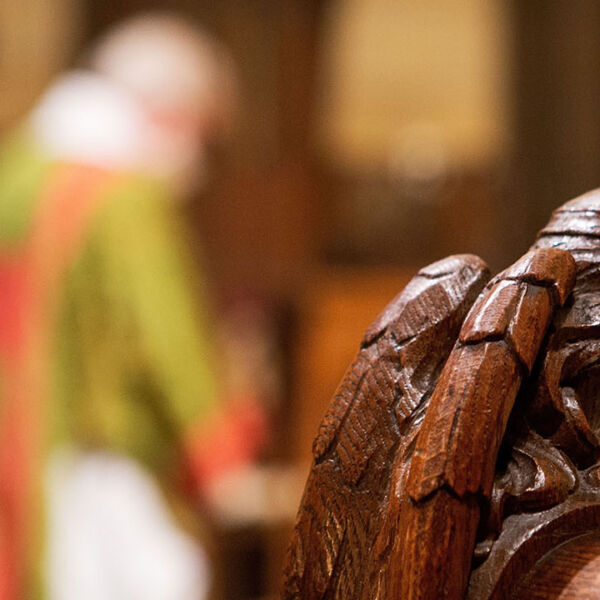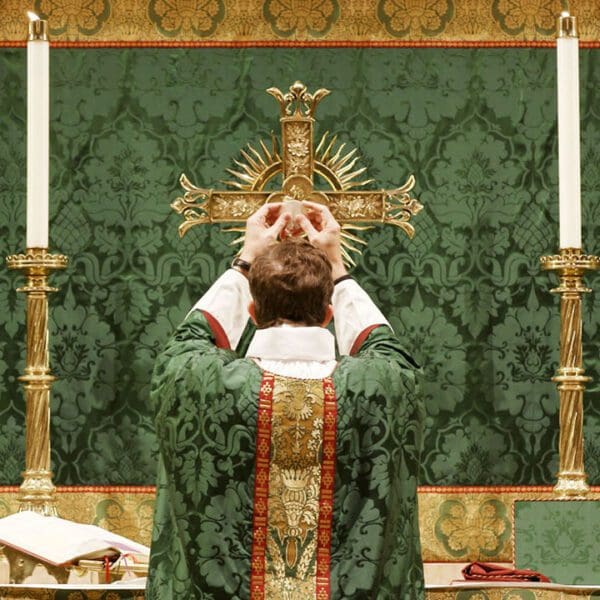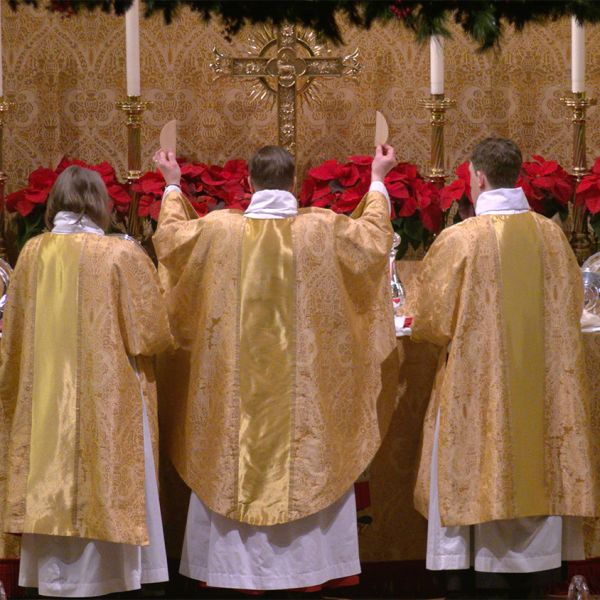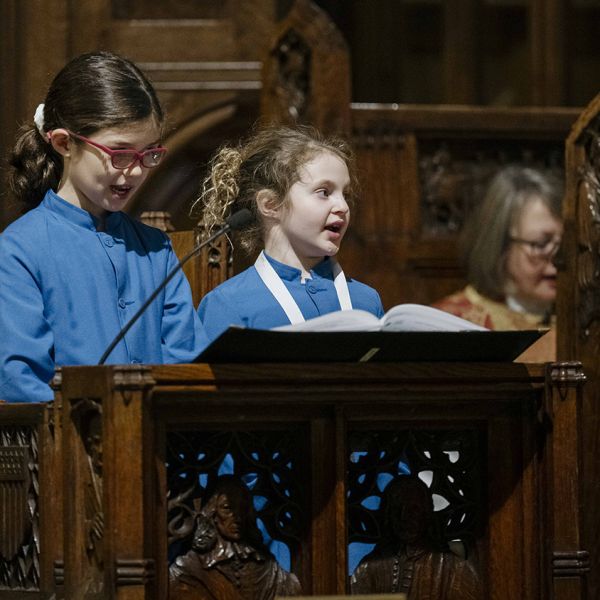Psalm xcvi.9
The worship of God isn’t the sort of thing that a person does merely because it’s beautiful or meaningful or a good thing to do…though worship is, of course, all of those things. The worship of God is the very purpose of creation, and our acts of worship are nothing less than our highest calling as human beings. Worship is the response of the creature to the Creator: who and what we are is shaped to be in relationship with God, and in and through our worship, we give ourselves to God to further form us in the image of love, to heal us, restore us, renew us, and to draw us deeper into relationship.
It is not the case that God, in God’s sovereign majesty, somehow needs our worship. It is, however, the case that worship crowns and conducts our humanity to its completion. We need to worship, and God not only graciously pledges to receive our sincere worship, but God lovingly makes our worship worthy through the power of his Spirit alive in us and in the Church. Indeed, so central is worship to our human identity that if we were not to worship God, if we were not to commit or even abandon ourselves to the love and mercy of God, we would find something else to which we might abandon ourselves…much, alas, to our detriment and destruction.
There are many who say that they can worship God just as well in a church as in a quiet forest, or facing a glorious sunrise, or walking quietly on the beach, or spending time laughing with friends and family. It’s true: we can worship God anywhere, we can encounter God anywhere. So why go to church?
When God speaks of where he’s present, he says, “Where two or three are gathered together in my name, there am I in the midst of them” (Matt xiix.20). The gathered community, centered on God, is essential, and the Body of Christ is the gathered community of faith. Being in right relationship with God and being in right relationship with other people go hand in hand. Thinking we don’t need a community with which to grow, by which we can be challenged, corrected, encouraged, exhorted, thinking we can go it alone in our worship isn’t the first step towards a deeper spirituality: it’s the solipsistic road to spiritual desolation. Our private prayer must be based on- and flow from our public worship. Our common worship together, as a community, is a means of grace that empowers us and enables us to encounter God in creation, in every detail of our lives and relationships.
Worship is not just about being-in-community, though. Granted, there are some who will say that they go to church for the fellowship, the sense of bonhomie, to visit with friends. And there are many ways of finding community that may be more convenient or socially satisfying than going to church! Worship, though, is about obeying our Lord’s command, at the Last Supper, to “Do this” (Luke xxii.19, I Cor xi.24-25), celebrating the Eucharist in the context of a living community of faith that is Eucharistically centered, offering to God the worship God has revealed to us in scripture as the way by which we participate in Jesus’ own act of offering himself and, through him, all of creation to the Father. This is why we worship together in church.
Some will say they go to church for the beauty of the space and its appointments, or for the gorgeousness of the music, or for the experience of a good homily. While all these things are certainly lovely and attractive, they’re insufficient in themselves, and they’ll likely fail us if we rely on them to keep us in the habit of worshiping in church: we’re bound to encounter someone we’d rather not see, the beauty that once was stunning can become commonplace, a sour note might disturb our meditations, and a homily might fail to inspire us or may even disappoint us with its message or its rhetoric. If our ability to worship depends on the satisfaction of our tastes, then we’re no longer talking about participating in worship: we’re sitting apart from the worship of the church and insisting that it become a performance for us, mistaking what may merely move us aesthetically for the subtle movements of the Spirit that are meant to transform us completely. Our tradition affirms: what God is by nature, we will be by grace. Our sacramental worship in particular is a precious means of grace by which God in God’s mercy divinizes and transforms our souls in love.

